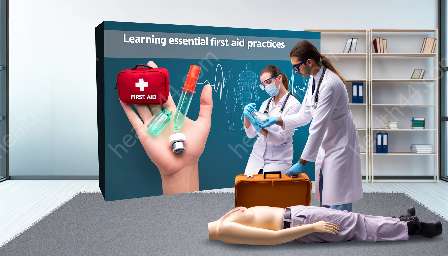Seizures can be frightening to witness, but with the right knowledge and tools, you can effectively manage them. This topic cluster will cover seizure management in detail, including its links to first aid and health education & medical training.
Symptoms of Seizures
Recognizing the symptoms of a seizure is crucial for timely management. Seizure symptoms vary depending on the type of seizure, but they can include:
- Tonic-clonic seizures: Characterized by stiffening of the body, shaking, and loss of consciousness.
- Absence seizures: Marked by brief periods of staring into space or subtle body movements.
- Focal seizures: Symptoms may vary, from muscle contractions to altered consciousness or unusual sensations.
First Aid for Seizures
Knowing how to provide first aid during a seizure is essential for ensuring the safety and well-being of the individual experiencing the seizure. Follow these steps:
- Stay Calm: Keep calm and reassure those around you.
- Create a Safe Environment: Clear the area around the person to prevent injury during the seizure.
- Cushion the Head: Place something soft under the person's head to prevent injury. Do not hold the person down or put anything in their mouth.
- Time the Seizure: Note the start time of the seizure to help gauge its duration.
- Recovery Position: Gently roll the person onto one side after the seizure is over to help keep their airway clear.
Health Education & Medical Training
Understanding how to manage seizures goes beyond basic first aid. Health education and proper medical training are essential for providing comprehensive care for individuals with seizures. Training should cover:
- Medication Management: Understanding the medications prescribed for seizures is critical for effective management and support.
- Recognizing Triggers: Discuss potential triggers for seizures and how to avoid them, such as stress, lack of sleep, or specific environmental factors.
- Emergency Response Protocols: Training individuals in the community and healthcare settings to respond to seizures effectively can save lives and prevent complications.
Understanding Seizure Management
By gaining a thorough understanding of seizure management, you can contribute to a safer and more supportive environment for individuals living with seizures. Whether you're learning first aid, pursuing health education, or seeking medical training, being well-informed about seizure management is crucial for providing proper care and support.



